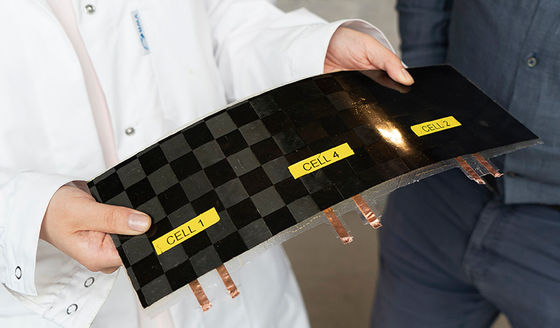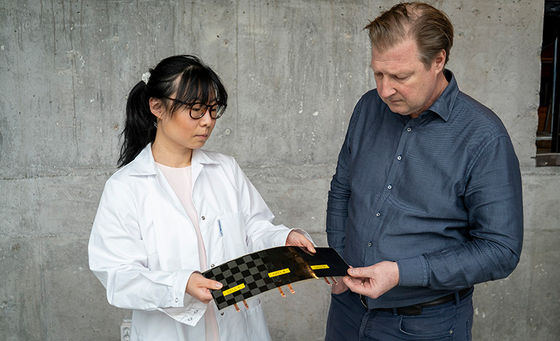What is a 'structural battery' that weighs virtually zero?

Battery electric vehicle is equipped with are generally heavier than the gasoline engine, electric vehicles (PDF file) than gasoline-powered vehicles in the same class
Big breakthrough for'massless' energy storage | Chalmers
https://www.chalmers.se/en/departments/ims/news/Pages/Big-breakthrough-for-%E2%80%99massless%E2%80%99-energy-storage.aspx
The idea of making the battery part of the car body has long been advocated. For example, in 2017, Italian carmakers Lamborghini and the Massachusetts Institute of Technology announced the Terzo Millenio, an electric vehicle concept model that incorporates a battery into the wheel to reduce weight and space.
Lamborghini and MIT announce a super EV 'Terzo Millenio' that does not require a battery by charging the car body itself --GIGAZINE

In order to put such a 'structural battery' into practical use, it is necessary to clear the issue of achieving both strength and performance as a battery. Therefore, the research team of Professor Asp and others focused on the fact that carbon fiber used for carbon fiber reinforced carbon composite materials has a function as a negative electrode for batteries. In collaboration with researchers at the Royal Institute of Technology in Sweden, we have developed a structural battery made of carbon fiber that can store electrical energy while maintaining high strength and rigidity.
The following is a structural battery prototyped by Professor Asp and others. This battery was manufactured by separating a carbon fiber electrode and a lithium iron phosphate electrode with a glass fiber cloth and impregnating it with an electrolytic solution.

The energy density of this structural battery is 24
Professor Asp also said, 'Structural batteries made so far have only been superior in mechanical or electrical properties, that is, either strength or capacity, but by adopting carbon fiber, We have succeeded in designing a structural battery that is competitive in both. '

The research team plans to further improve this structural battery with a new project funded by the Swedish National Space Agency. Professor Asp expects this to eventually result in a structural battery with an energy density of 75Wh / kg and a stiffness of 75GPa comparable to aluminum.
Related Posts:






